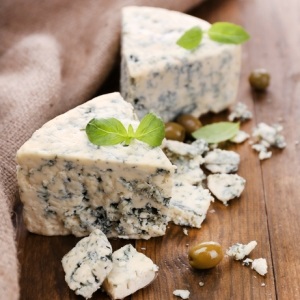
For better or for worse, we all have our own opinions as to what constitutes a healthy diet, but it’s obvious that we’re not all the same and a “one size fits all” approach is not the answer.
Fresh, minimally processed foods
There are, however, general principles that constitute healthy eating that are internationally accepted by doctors and dieticians – as laid out by the revised general food-based dietary guidelines for South Africans, 2012:
- Enjoy a variety of foods.
- Be active!
- Make starchy foods part of most meals.
- Eat plenty of vegetables and fruit every day.
- Eat dry beans, split peas, lentils and soya regularly.
- Have milk, maas/amazi or yoghurt every day.
- Fish, chicken, lean meat or eggs can be eaten daily.
- Drink lots of clean, safe water.
- Use fats sparingly. Choosevegetable oils, rather than hard fats.
- Use sugar and foods and drinks high in sugar sparingly.
Choosing mostly fresh, whole, minimally processed foods, and limiting highly processed foods and drinks that are energy-dense and loaded with added sugar, salt and unhealthy fats, is a logical conclusion based on these guidelines.
The ‘French paradox’
The “French paradox” is a term that encapsulates the phenomenon that the French tend to stay slim and have a relatively low rate of coronary heart disease (CHD), despite the fact that they have one of the fattiest diets in the world. (They have a 42% lower incidence of heart disease than the average American.)
If the long-held notion that saturated fats cause heart disease is true, the French should have more CHD than countries where the consumption of hard fats is lower.
Read: Heart disease – the risk factors
In order to explain this paradox, one has to consider that either saturated fat is not the culprit in coronary heart disease, that the studies on which the observation are based are flawed (unlikely!), or that something in the diet or lifestyle of the French offsets the effect of hard fats.
There are those who oppose the theory that blood cholesterol and a high-fat diet are the causes of heart disease, like our very own Prof Tim Noakes, who calls this theory “one of the greatest errors in the history of medicine”. Most experts, however, don’t agree with Prof Noakes, and the battle continues unabated.
Red, red wine
The most common theory is that the high consumption of red wine in France is responsible for the French paradox – and has led to increased sales of red wine all over the world.
Experts believe that resveratrol, one of the components of red wine, is responsible for its positive effects on heart health. Another candidate may be procyanidins, a kind polyphenol, found in red wine, olives, tea and cereals.
Read: Red wine may help you live longer
Others believe that the lower incidence of CHD among the French can be attributed to a healthier lifestyle compared to e.g. the British and Americans. The Fat Fallacy: The French Diet Secrets to Permanent Weight Loss, by American, Will Clower, proposes that the French paradox may be influenced by a number of other factors:
- French people get most of their dietary fat from minimally processed dairy and vegetable sources.
- They eat fish at least three times a week.
- They eat smaller portions, and eat more slowly, dividing their food into courses.
- They eat less sugar and prefer full-fat food without added sugar.
- The French tend not to snack between meals.
- They avoid sodas, deep-fried foods, snack foods, and ready-made foods, as typically found in American grocery stores.
Read: French vs. US portion sizes
Enter blue cheese
Researchers at Lycotech, a biotech company in Cambridge, England, have found that smelly “blue” cheeses like Roquefort, Stilton and Gorgonzola can protect against heart disease because of their anti-inflammatory properties (Published in the journal Medical Hypotheses).
This could help explain why people like the French who eat a diet high in saturated fats have low rates of cardiovascular disease.
This is interesting, because attributing the French paradox purely to the consumption of red wine imay be a long shot, and it is probable that there might be some other dietary factors that contribute to lower rates of CHD.
According to the scientists, the anti-inflammatory factors found in these cheeses work best in the body's acidic environments like the stomach lining and contribute to a healthy gut, which also helps to slow arthritis and physical signs of ageing like cellulite. They add that "...there is a growing consensus that sub-clinical inflammation is behind many ageing processes, from the loss of skeletal muscles and cellulite to metabolic, cardiovascular and cerebrovascular diseases."
Only a hypothesis
Before rushing out to buy red wine and every ounce of blue cheese you can lay your hands on, bear in mind that the research on the effects of these foods on e.g. heart health is relatively new and that there are as yet no conclusive evidence either way.
In the words of the Lycotech researchers: "We hypothesize that cheese consumption, especially of molded varieties, may contribute to the occurrence of the 'French paradox'.”
Read more:
Saturated fat bad for heart
Red wine for heart health
Cheese not as bad for cholesterol




 Publications
Publications
 Partners
Partners










